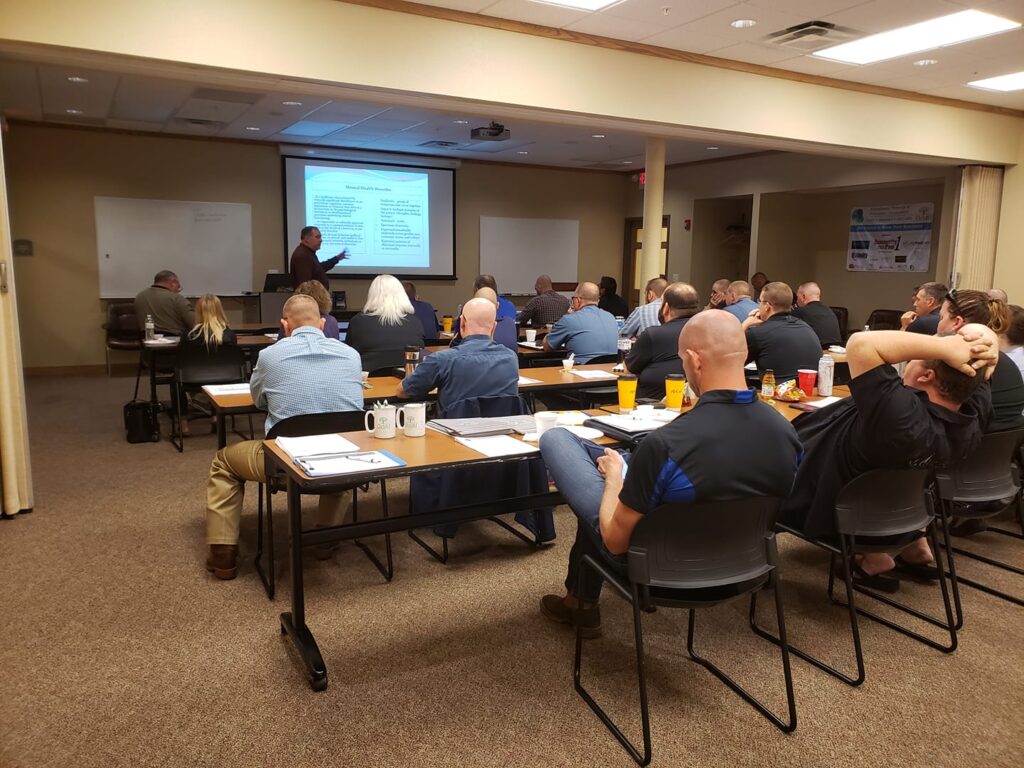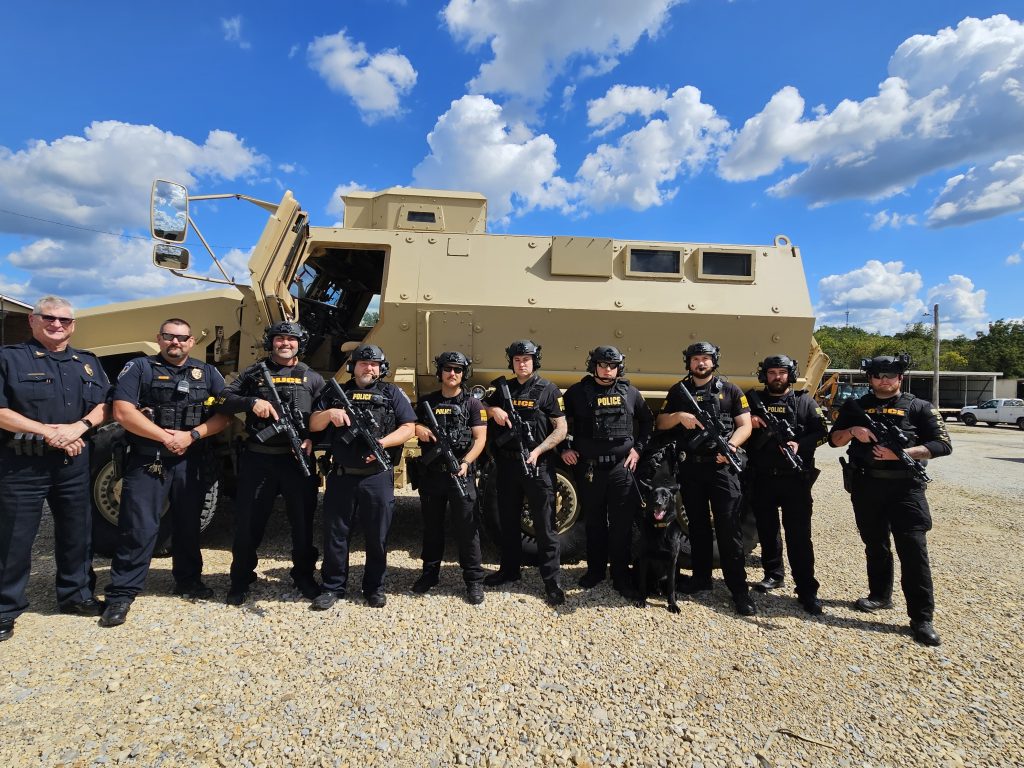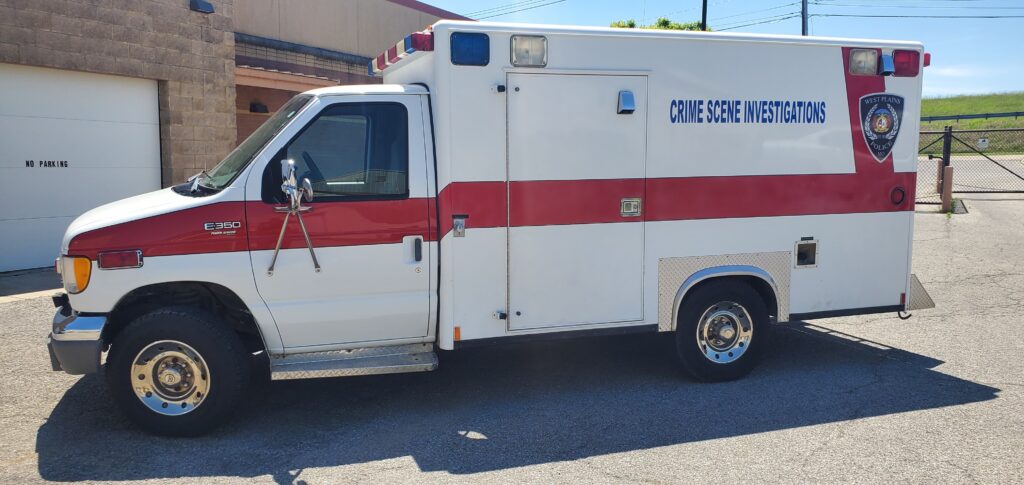Crisis Intervention Team

Strategic Response Team
The West Plains Strategic Response Team (SRT) was created in December of 2017 and consists of commissioned personnel from the West Plains Police Department. The West Plains Strategic Response Team is an “on-call” division that responds to a variety of incidents to include high risk situations, barricaded subjects, search warrant execution, search and rescue operations, bomb threats, and planned events within the city where additional staffing is needed. The West Plains Strategic Response Team also assists the Region G All Hazards Team which consists of law enforcement, fire, and medical personnel that responds to hazardous incidents in the Region G area.
The West Plains Strategic Response Team includes multiple members of the Crisis Negotiations Team and a K-9 Unit. SRT also participates in multiple Driving While Intoxicated (DWI) saturations throughout the year where officers look for impaired drivers within the city limits of West Plains.
Team members receive specialized training in operational movements and techniques, firearms tactics, less lethal tactics, defensive tactics, and advanced medical training. Lieutenant Kyle Ellison operates as the Commander for the Strategic Response Team. Sergeant Colter Reid is the Team Leader, and Officer Ivie Powell operates as the Assistance Team Leader. The Team Leader coordinates the team response, conducts incident briefings/debriefings, and schedules training for the members. The Chief of Police oversees all team operations.

Forensic Evidence Team

In 2020 The Department realized there were two areas that needed to be improved in regards to evidence handling in violent crimes. The first of these improvements was the development and selection of a “Forensic Evidence Team”. The team was created by selecting three patrol officers that would receive additional training in evidence collection to assist Investigators during major incidents. The training they received will also assist them in their regular assignments and makes them a resource for Patrol Officers to draw upon when the need arises.
The second improvement was the development of a Forensic Evidence Vehicle that would hold all kinds of crime scene investigation and evidence collection equipment that would be needed at a major crime scene. This was managed by taking a decommisioned Ambulance and repurposing to meet the need.

